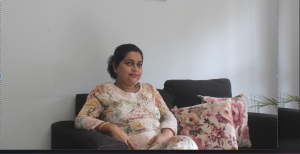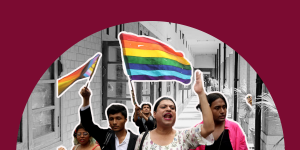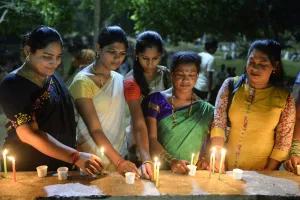Despite NALSA, Transgender Persons Absent In Government Policies In West Bengal
- Sukanya Roy
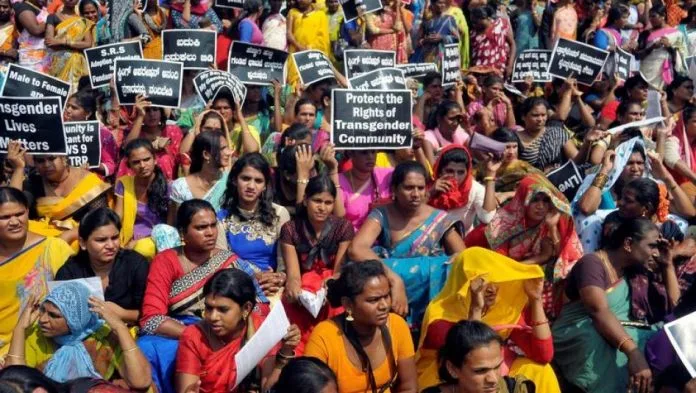
Silk (28), a transwoman, was in for a shock as she went to cast her vote in Kalyani, in Nadia district of West Bengal in mid-April in the recently held West Bengal assembly elections. At the polling booth, she was asked to stand in the ‘male’ queue as her voter card still bore her gender assigned at birth. The officials allowed her to cast her vote only after scanning her “from top to toe”.
“The kind of glances that are shot at me or the things people whisper under their breath, always takes away any desire I had to vote”, she told BehanBox.
West Bengal has 30,349 transgender citizens according to Census 2011, who are socially marginalised, politically underrepresented and economically impoverished. Despite the 2014 NALSA judgement which issued directives to Central and state governments to ensure the overall development, equality, and safety of transgender persons in society, the government of West Bengal has failed to develop adequate policy interventions and welfare measures to ensure justice.
In the last election held between 27th March and 29th April 2021, the Communist Party of India (Marxist) and the Bharatiya Janata Party (BJP) included a brief mention of issues of transgender persons’ welfare. The ruling Trinamool Congress (TMC), however, did not have anything on their manifesto.
A week before the elections, 21 LGBTQIA+ organisations across West Bengal released the Bengal Trans* and Queer Charter of Demands which included demands for policies on education, health, welfare, financial inclusion, social discrimination, civil rights and political participation of Gender and Sexual Minorities (GSM) in the state.
“The pandemic lockdown was an especially tough time for us. We had no jobs. The Amphan cyclone battered many of our houses last year for which we received no support from the government”, says Sintu Bagui, a Bahujan transwoman running Kolkata Anandam, a forum advocating the rights of transgender sex workers. Bagui hopes for the charter to be a wake-up call for the state government.
The political under-representation of transgender persons is reflected in the fact that no political party nominated a transgender candidate to contest the Assembly elections in 2021. In 2016, the Lok Janshakti Party (LJP) had fielded two transwomen, who ultimately withdrew their candidature before the polls.
“They faced intense political pressure, verbal and physical bullying from the mainstream parties in the State, including the ruling TMC”, said Meera Chakroborty, the state president of LJP.
In 2014, the NALSA vs. Union of India judgement was much-lauded for according India’s transgender community with the right to self-determination, either within the gender binary, or as a third gender. Gender identity could be asserted irrespective of having undergone Sex Reassignment Surgery (SRS). The controversial 2019 Transgender Persons (Protection of Rights) Act took gender away from the mind and confined it to the body. By mandating medical proof of transition as a prerequisite for gender change, the Act reversed the right of self-determination granted by the NALSA judgment, which had explicitly ruled any insistence for SRS to be “immoral and illegal”.
Absent in documentation

Only 16% of transgender persons in West Bengal have Aadhar cards according to a reply by Ravi Shankar Prasad, Minister for Communications and Information Technology in the Rajya Sabha in 2016. Lack of identity proof excludes a large proportion of transgender persons from availing social welfare schemes in the state.
Fewer Aadhar cards is the result of convoluted and demanding documentation processes stipulated by the the 2019 Transgender Persons Act. Transgender persons are first required to obtain a “Transgender certificate” from the District Magistrate (DM), which serves as an identity proof.
However, to initiate a legal change in gender, they must provide a certificate issued by the Chief Medical Officer of the institution where their Sex Reassignment Surgery (SRS) or Hormone Replacement Therapy (HRT) has been completed. Arjoneel Chakroborty, a transman in his early 20s, studying at a Central university had to navigate several bureaucratic hurdles, from the District Magistrate to the District Social Welfare Officer (DSWO), each time explaining why he needed the certificate. He has still not been able to obtain the documents.
In many cases, the concerned officers are unaware of the rules under the Transgender Act and the ensuing processes themselves.
“When I asked the District Magistrate of North 24 Parganas whether he had received any notifications regarding the Act, he looked perplexed. He admitted to being unaware of any such legislation”, said Rahul Mitra, founder member of Transmasculine Initiative for Support And Resistance (TISAR), the first group focussing exclusively on transmasculine individuals in West Bengal.
Exclusion from state policies
Swawlamban, a vocation training scheme, is the only state government scheme targeting transgender persons as beneficiaries. In 2016, a new scheme called Swabalamban Special along with the previous Muktir Alo Scheme, was started to provide female sex-workers with rehabilitation, skill training and start-up capital of Rs. 25,000 per person.However, data on the number of transgender individuals and organisations benefitted by either scheme is not available in public domain.
“The scheme would have been very beneficial to us but there was hardly any awareness,” says Sumi, founder of Maitri Sanjog, a transgender rights NGO based in Coochbehar that works towards rehabilitating transgender persons who have escaped abusive households. and want to take up livelihoods other than sex work, begging, badhai and lagan.
Swasthya Sathi scheme which provides 5 lakhs per annum, per family, to cover medical expenses at a list of empanelled hospitals has its own set of issues. The lack of a ‘gender’ column on the form, wrongly substituted by ‘sex’ has caused disruption in the applications of transgender persons.
Sudipa Chakraborty, a transwoman and social activist working with Solidarity and Action Against The HIV Infection in India (SAATHII), a rights forum for HIV positive individuals recounts her traumatic experience while navigating the enrolment process.
She had registered herself as ‘trans woman’ on the form, but was listed as female on her acknowledgement slip. She was made to wait on a bench from morning until evening at the enrolment centre, even as others had their forms processed.
“After everyone had left, the officials approached me and said that they did not think someone ‘like me’ would apply for the scheme”, Sudipa told BehanBox.
She was asked to re-apply for the scheme since they did not know how to accommodate her identity. Transgender persons are also excluded from the Gitanjali scheme, which provides for a one-room house for families earning Rs.6000 or less, per month.
“Most openly transgender people have been turned out of their family, and live inside hijra gharanas or on railway tracks. Where will they get the land to build a house on?”, asked Chakraborty. Only 2% of transgender individuals live with their natal family according to a 2018 survey conducted by the National Human Rights Commission.
One of biggest issues with accessing welfare and legislation for transgender persons is the undue stress laid on natal family relations said Sai Bouruthu, a Bahujan transwoman working with the Commonwealth Human Rights Initiative’s (CHRI) Prisons Reform program, a research and advocacy initiative to the ensure basic human rights for prison inmates.
“Teleological determination of identity does not work for transgender persons. When fleeing their homes, one hardly has the time to dig up their birth certificate or carry a copy of their parent’s identity proof”, said Bouruthu.
The West Bengal government announced the Khadya Sathi scheme which provides free rations for transgender persons during the Covid pandemic. “People mostly got ration through connections within the community, which excluded the majority of us”, said Rahul Mitra of TISAR.
Silk states that the ration received was insufficient. “How could 10kg food supplies and a saree sustain us over six months, let alone our families?” she asks.
Transgender development board
In 2015, a Transgender Development Board was constituted in West Bengal by the Department of Women & Child Development and Social Welfare. Since the NALSA judgement, Assam, Tamil Nadu, Kerala, Andhra Pradesh, Telangana (Transgender Community Desk), Gujarat, Bihar and Maharashtra have also set up welfare boards with varying impact. Trans activists allege undemocratic election and inadequate representation as some glaring failures of the West Bengal board.
“The first major discrepancy is that the chairperson of the transgender board is Dr. Shashi Panja, a cisgender woman”, said Anindya Hajra, trans rights activist. “Why are cisgender people drawing salaries and claiming positions on a board dealing with issues they have no lived experience in?” asks Rahul. He also highlights that, of the six transgender persons on the board, only one was a transman.
One of the duties of the board was to frame a dedicated transgender welfare policy for the state, which has remain unfulfilled.
“The Board has no direct powers vested in it, its function is largely tokenistic. At best, it is a body that the government can consult with, occasionally”, said a trans rights activist who wished to remain anonymous.
Discrimination in education and housing
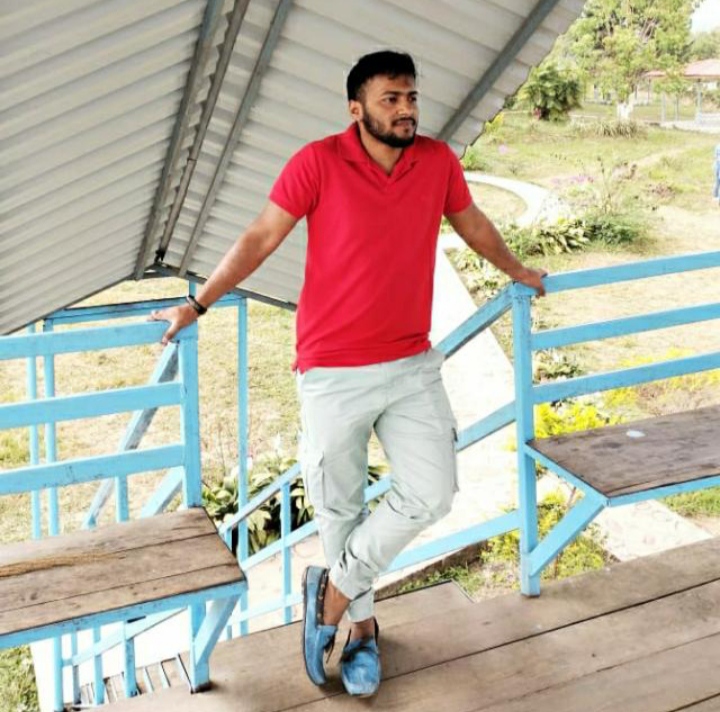
Kaunish Dey Sarkar remembers his school days in the Banarhat tea garden area of the Jalpaiguri district to be traumatic and alienating. The school uniforms, a skirt and a saree, perpetually triggered his body dysphoria. “Other children would forcibly pin hairclips to my hair, and scribble transphobic stuff on my desk. Out of the blue, teachers would slap me with a thick ruler to ‘correct’ my walk”, he recalls.
Discrimination and transphobia have had major impact on academic futures of trans children. Data from the Central Board of Secondary Education shows that the pass percentages for transgender students taking secondary and higher secondary school examinations have dropped by 15.7% and 16.7% respectively, even as those of cisgender students improved in 2020. Transgender students are also more likely to drop out of school.
“The hostility [of the educational system] forces us to drop-out”, Dey Sarkar adds.
Despite the NALSA judgment’s recommendation for reservation for transgender persons in state-run schools and colleges, the West Bengal government offers no affirmative action or subsidy for gender-diverse students.
This discrimination extends to higher education, where administrative processes make it difficult for transgender persons to access quality education at universities.
Arjoneel, a transman, had his gender entered incorrectly when he filled the ‘transgender’ option in his admission form. Further, his university neither has separate washrooms on campus nor a separate hostel for transgender students, which has forced him to opt for a costlier rented accomodation outside the campus.
Transgender persons also face acute discrimination while renting accommodation in West Bengal. This is due to the weak implementation of the 2019 Trans Act which explicitly prohibits harassment while renting out property, as well as inadequacy of laws, criminalising individuals who deny them housing.
Saira Afsana, a Dalit Muslim transwoman, had to move several cities after she was refused housing because of her multiple marginalities. Her experience with her landlord in Baranagar, in North 24 Parganas district of West Bengal, was particularly traumatic.
“At first it was fine. Soon, the landlord started forcing me to introduce myself with a “Hindu name” to people. They would tell others I was intersex since birth and not trans” recounts Saira, who has now moved to Bangalore where she feels safer.
When Pinky*, a teenage transwoman, tried to file an FIR against her abusive father at a local police station, before escaping her family, she was told by the station in-charge that a complaint could only be filed if she brought her father along. She was sent back to the same traumatic home environment which she wanted to flee, and the abuse continued.
The State government’s obligation to build shelter homes for transgender persons escaping abuse at the hands of family members, has also not been fulfilled. The “Garima Greh” scheme of the Ministry of Social Justice and Empowerment, a pilot project aiming to build thirteen shelter homes for transgenders persons across ten cities, is yet to be implemented in West Bengal.
Discrimination in healthcare
For most transgender persons, SRS is a life-affirming process. Yet, gender affirmative healthcare is not covered under Swasthya Sathi healthcare scheme or any other schemes in the state. Not a single government hospital in the state is equipped with facilities for conducting safe and reliable SRS surgeries, said Tista Das, a trans activist.
Das’ own distressing experience at Seth Sukhlal Karnani Memorial (SSKM) hospital, one of Kolkata’s foremost government hospitals, prompted her to start a private clinic which provides low cost and safe HRT and SRS facilities.
“My Gender Identity Disorder (GID) test [required pre-surgery] was never cleared. The hospital gave me fake medicines, and a board of doctors insulted my parents before they turned me away for good”, said Das. Private clinics offer SRS that can cost upto 5 lakhs, she says. Female-to-Male (FtM) surgeries are impossible even at private clinics according to Rahul Mitra of the Transmasculine Initiative for Support And Resistance (TISAR).
“When I went to the Calcutta Medical Hospital [for his GID certificate], the head of the psychology department called me “crazy” and prescribed tranquilizers”, he told BehanBox.
Discrimination at workplaces
Not a single government mandate or law explicitly prohibits discrimination against transgender persons working in government institutions or projects. The Sexual Harassment of Women at Workplace (POSH) Act and the Vishakha Guidelines are the only two Central legislations binding on state governments. Chapter V of the 2019 Transgender Persons (Protection of Rights) Act stipulates for a “grievance redressal mechanism” and a “complaint officer” to address discrimination against transgender persons in all government workplaces. However, Kaunish Dey Sarkar, who works with the State Electricity services, said that such mechanisms have not been instituted at his office.
Armaan ( name changed), a transman who taught English at a government-aided school, faced severe harassment from the school’s Headmistress, the District Inspector (DI) and the Sub Inspector (SI) of his area.
“They denied me medical leave during my transition, and kept me without pay for the entire lockdown period. I am the sole earner of my family. When I asked for a transfer, they refused to give me the release letter and deducted three months salary”, he recounts. The school has refused to comply with the Calcutta High Court order which asked the school to release his dues.
Sintu Bagui, West Bengal’s first transgender Lok Adalat judge, mentions instances of trans women working as wage labour being denied work and payment under the Mahatma Gandhi National Rural Employment Guarantee Act (MGNREGA) as their job cards and identity proofs bore outdated gender and names. Dipan, a transman, who works at a private pharmaceutical company in Kolkata’s technological hub of Salt Lake also mentions the lack of trans-inclusive corporate policies to penalise bullying.
Police negligence and harassment
The West Bengal police force has displayed transphobic attitudes on several occasions. Despite announcing its plans to recruit transgender persons as a part of their Civic Police Force, it has not yet hired anyone from the community.
“The police do not register rape cases against us”, said Megh, a transgender activist at Northern Black Rose Forum in Siliguri. “We are lucky if they register an assault case.”
The Trans Act, 2019 sentences rape of a transgender individual with six months to two years of prison (Chapter VIII), compared to a seven-year to life term imprisonment for rape of cisgender women under IPC Sec 375.
No separate data on transgender victims of crimes, sexual or otherwise, is maintained by the National Crime Records Bureau, found an expert committee report constituted by the Ministry of Social Justice in 2014. The CHRI report which documented rights violations of transgender inmates in Indian prisons found that only 9 states in India maintained data on transgender prisoners. There were data seven transgender inmates in West Bengal, it found.
“There is scant sensitisation and training of prison officials and zero transgender prison staff, exposing vulnerable people to all kinds of abuse at the hands of officials”, said Bouruthu of CHRI. The curbing of civic rights by the State, such as marriage, adoption and inheritance, continues to fragment the political personhoods of transgender and gender non-conforming persons. It equally delegitimizes their private collectives achieved through radical relationships of love, intimacy, and belonging.
“I will respect only that legislation, which first recognises the playfulness of my gender identity”, said Anindya Hajra, a transgender rights advocate.
We believe everyone deserves equal access to accurate news. Support from our readers enables us to keep our journalism open and free for everyone, all over the world.
